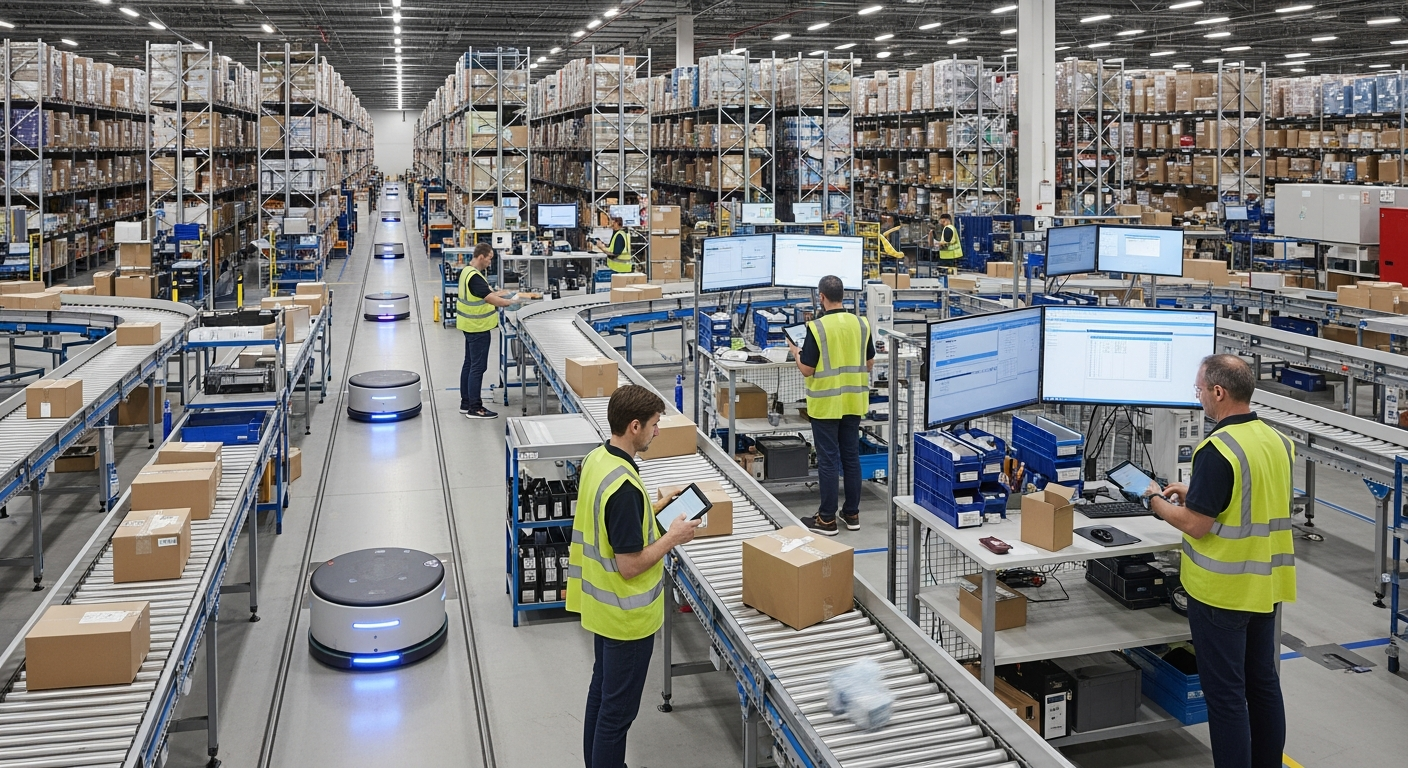Career Pathing Through Industry Immersion Programs
Stepping beyond traditional career development approaches, industry immersion programs are transforming how professionals discover their vocational calling and advance their careers. These intensive, experiential learning opportunities bridge the gap between academic knowledge and workplace realities by placing participants directly into professional environments. Unlike standard internships or job shadowing, immersion programs provide structured, comprehensive exposure to industry operations, culture, and expectations. Career seekers gain invaluable insights through hands-on projects, mentorship relationships, and authentic workplace challenges that simply cannot be replicated in classroom settings or through online courses.

Understanding Industry Immersion Programs
Industry immersion programs represent a powerful alternative to conventional career exploration methods. These structured experiences typically span from several weeks to six months, during which participants engage directly with companies and organizations in their target field. Unlike traditional internships that often focus on entry-level tasks, immersion programs are designed to provide comprehensive exposure to multiple aspects of an industry or profession. Participants may rotate through various departments, contribute to real projects, attend strategy meetings, and receive guidance from established professionals across different specializations.
The history of industry immersion traces back to apprenticeship models but has evolved significantly in the modern professional landscape. Early versions emerged in the 1980s within technical fields like engineering and manufacturing, where the complexity of work processes necessitated hands-on learning. By the early 2000s, immersion programs had expanded into healthcare, finance, technology, and creative industries. Today’s programs incorporate sophisticated learning frameworks, personalized development plans, and structured feedback mechanisms to maximize their effectiveness for career development.
Research from the National Association of Colleges and Employers indicates that participants in comprehensive industry immersion programs report 62% higher career clarity and 47% stronger professional networks compared to those who rely solely on traditional career development resources. These programs have gained particular prominence in industries undergoing rapid transformation, where formal education struggles to keep pace with evolving skill requirements and organizational practices.
The Multi-Dimensional Benefits of Immersive Learning
Industry immersion delivers advantages that extend far beyond basic skill acquisition. The experiential nature of these programs activates multiple learning pathways simultaneously, creating deeper, more lasting professional development. Participants develop technical competencies through hands-on application while simultaneously absorbing critical contextual knowledge about how their skills function within organizational ecosystems.
The neuroscience behind immersive learning reveals why these programs prove so effective. According to research from the Learning and Development Institute, immersive experiences activate multiple regions of the brain simultaneously, creating stronger neural pathways and enhancing knowledge retention by up to 75% compared to traditional learning approaches. When professionals engage in authentic workplace challenges, they develop cognitive frameworks that better prepare them for real-world decision-making.
Beyond technical skills, immersion participants develop crucial professional capabilities including adaptive thinking, contextual problem-solving, and social intelligence. A longitudinal study of immersion program graduates found they demonstrated superior situational judgment when facing novel workplace challenges compared to peers with equivalent academic training but without immersive experience. They also reported greater confidence in navigating professional environments and clearer understanding of unwritten workplace norms and expectations.
Perhaps most significantly, immersion provides career clarity through direct exposure to professional realities that might otherwise take years to discover. Participants can test-drive potential career paths before committing to extensive education or training programs, potentially saving substantial time and resources while increasing the likelihood of finding fulfilling work aligned with their strengths and interests.
Key Components of Effective Industry Immersion
The most impactful industry immersion programs incorporate several essential elements that maximize participant growth and career development. Structured rotations across multiple functional areas provide comprehensive understanding of how different roles contribute to organizational success. This cross-functional exposure helps participants identify which aspects of the work most align with their strengths and interests while developing appreciation for the interconnected nature of professional environments.
Meaningful project involvement represents another critical component. Unlike simulated assignments, immersion programs engage participants in actual business challenges with real consequences. These authentic contributions create accountability while demonstrating the practical application of skills and knowledge. Research by the Career Development Association shows that immersion participants who completed substantial projects were 3.2 times more likely to receive job offers within their target industry compared to those in observer-only programs.
Mentorship relationships form a vital aspect of the immersion experience. Effective programs pair participants with experienced professionals who provide guidance, feedback, and contextual insights difficult to access through other means. These relationships often extend beyond the formal program period, creating lasting professional connections that support ongoing career development. Studies indicate that immersion participants with dedicated mentors reported 58% higher satisfaction with their program experience and demonstrated stronger professional identity formation.
Reflection and integration activities complete the learning cycle by helping participants process their experiences and extract meaningful insights. Structured debriefing sessions, learning journals, and guided discussions transform discrete experiences into coherent professional knowledge. Programs that incorporate regular reflection demonstrate significantly higher rates of career clarity and purpose among participants compared to those focused exclusively on activity completion.
Navigating Access and Selection Challenges
Despite their benefits, quality industry immersion opportunities can present significant access challenges. Unlike standardized academic programs, immersion experiences often operate through informal networks and may lack transparent application processes. Research by the Career Equity Institute found that 67% of immersion opportunities are filled through referrals or existing relationships rather than open application processes, creating potential barriers for those without established connections.
Addressing these challenges requires strategic approaches from both aspiring participants and program administrators. Career seekers can leverage professional associations, alumni networks, and industry-specific events to build relationships that may lead to immersion opportunities. Creating personal outreach campaigns with customized value propositions can also demonstrate serious interest and potential contribution to organizations that might not have formal programs but would consider creating an immersive experience.
For organizations developing immersion programs, implementing transparent selection criteria and diverse recruitment channels can significantly expand the talent pool while enhancing program outcomes. Research demonstrates that immersion programs with participants from varied backgrounds generate more innovative solutions and broader perspective development. Progressive organizations have begun implementing skills-based assessment approaches rather than relying primarily on academic credentials or existing connections.
Financial accessibility represents another significant consideration, as many immersion opportunities offer limited compensation despite requiring full-time commitment. Emerging models addressing this challenge include employer-sponsored programs, educational institution partnerships that provide academic credit, and hybrid approaches that combine part-time immersion with compensated work. Several foundations now offer immersion scholarships specifically designed to support participants from underrepresented backgrounds or resource-constrained circumstances.
Maximizing the Long-Term Career Impact
The transformative potential of industry immersion extends well beyond the program period when participants implement strategic approaches to leverage their experiences. Documentation of projects, challenges, and accomplishments provides powerful evidence of capabilities that traditional credentials cannot convey. Creating a portfolio of work samples, decision processes, and outcome metrics enables immersion graduates to demonstrate their contributions in concrete, compelling ways during future job applications.
Network cultivation represents another crucial aspect of maximizing immersion benefits. Research from the Professional Development Institute indicates that immersion participants who maintained at least five meaningful professional relationships from their program reported 76% higher industry retention rates and 41% faster career advancement compared to those who did not sustain these connections. Successful participants approach relationship building systematically, identifying potential mentors and allies across different organizational levels and functional areas.
Knowledge transfer into subsequent roles distinguishes high-performing immersion graduates. Rather than treating the experience as an isolated chapter, successful professionals continuously apply contextual insights and industry understanding gained during immersion to enhance their performance in future positions. This integration of immersion learning with ongoing professional development creates compound career advantages that accumulate over time.
Perhaps most significantly, immersion experiences often catalyze career identity transformation. A longitudinal study tracking immersion program graduates over five years found that 78% reported the experience fundamentally altered how they defined themselves professionally, leading to more purposeful career choices and greater work satisfaction. This shift from external validation to intrinsic professional identity represents one of the most valuable yet least quantifiable benefits of comprehensive industry immersion.






